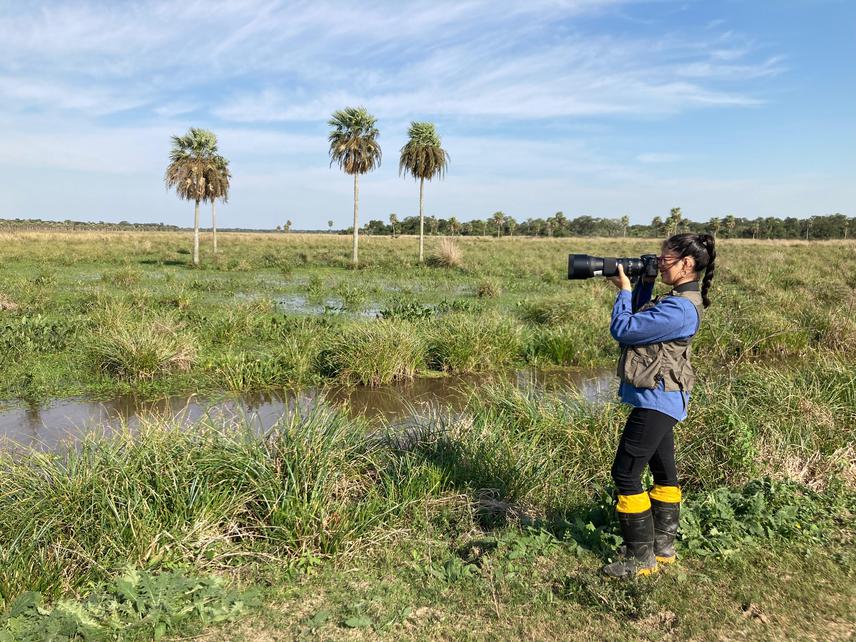Fatima Natalia Ortiz
Through this research we mainly seek to understand the current ecology and conservation of the nocturnal bird “Scickle-winged Nightjar” species Eleothreptus anomalus, known in Guaraní as “Yvyja'u tuju”, and in Spanish as “atajacaminos ala negra”, evaluated by the IUCN Red List of Threatened Species (2024) as Vulnerable in the sites associated with the Ñeembucú wetlands (Paraguay). The study area is located in the Humid Chaco, in the Department of Ñeembucú and belongs to the Ñeembucú ecoregion or Ñeembucú Wetland Complex represented by large areas adjacent to the Ypoá RAMSAR site and is part of the IBAS of Paraguay (2009). The aim is to determine the density and characteristics of its habitat and describe its pattern of activity and vocal behaviour of the nocturnal species, through the implementation of passive acoustic monitoring, to understand the ecology and behaviour of the Scickle-winged Nightjar.

Researcher, Fátima Ortiz, photographing the study area. ©Griselda Zárate.
Automatic recorders are used to obtain vocalizations recordings, allowing population analysis, habitat characteristics through occupancy models, and knowing the behaviour of the organism's vocal variation. The acoustic recorders will be placed in habitats related to wetlands in the south of the Department of Ñeembucú mainly, whether forest or palm savanna with a considerable distance to avoid overlapping records. These recorders will record all night time activity with the relevant settings. Therefore, acoustic monitoring will allow data to be collected over long periods, to help implement new conservation strategies for the species and improve the study effort to be carried out on threatened species. Therefore, with this research it is intended that with all the information generated it will serve to update all the information of the IBAS of Paraguay with Birdlife, even for future collaborations regarding this species in places of high anthropogenic pressure such as wetlands. and to better understand the vocal behavior of the globally vulnerable Yvyja'u tuju species.